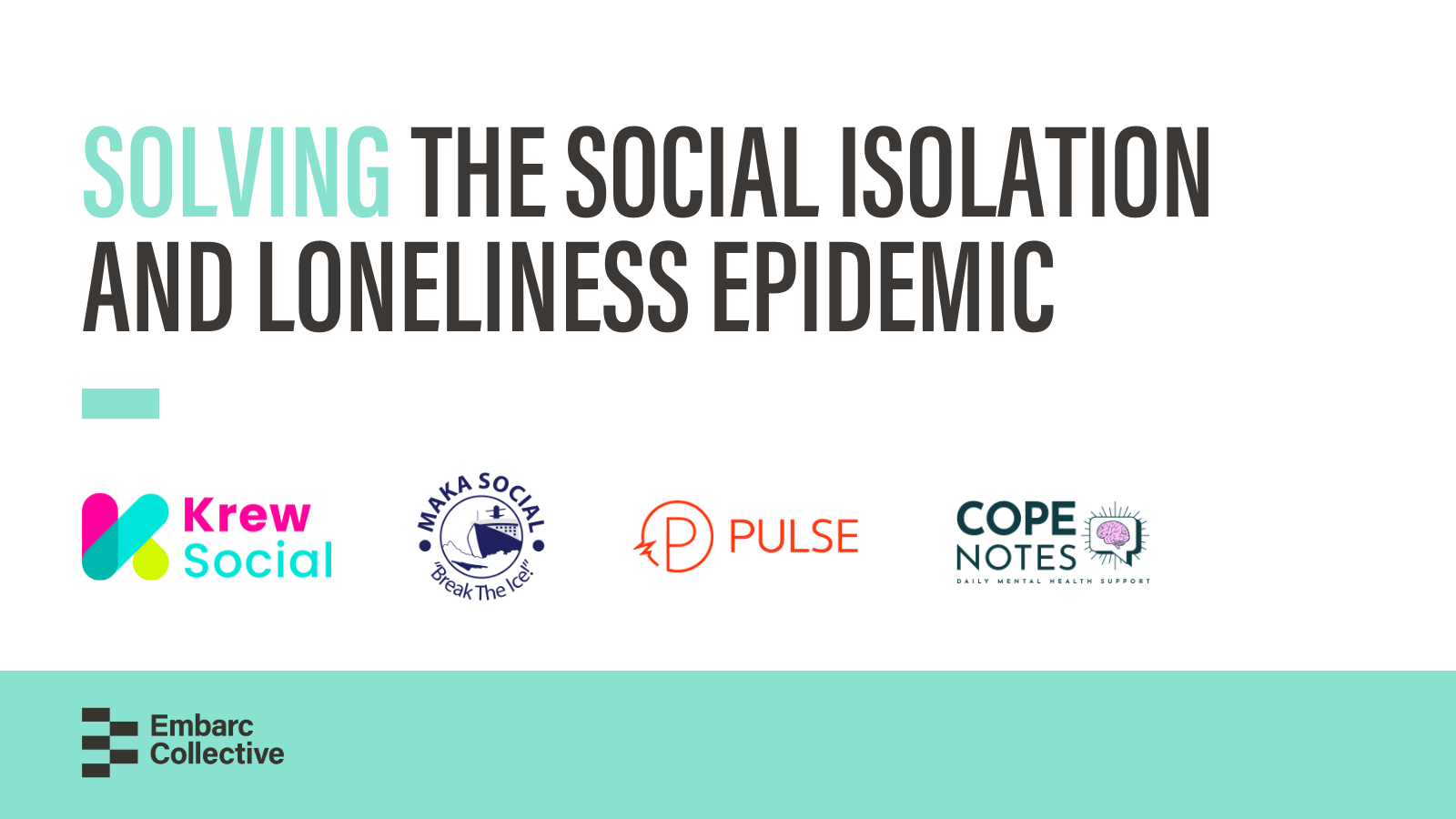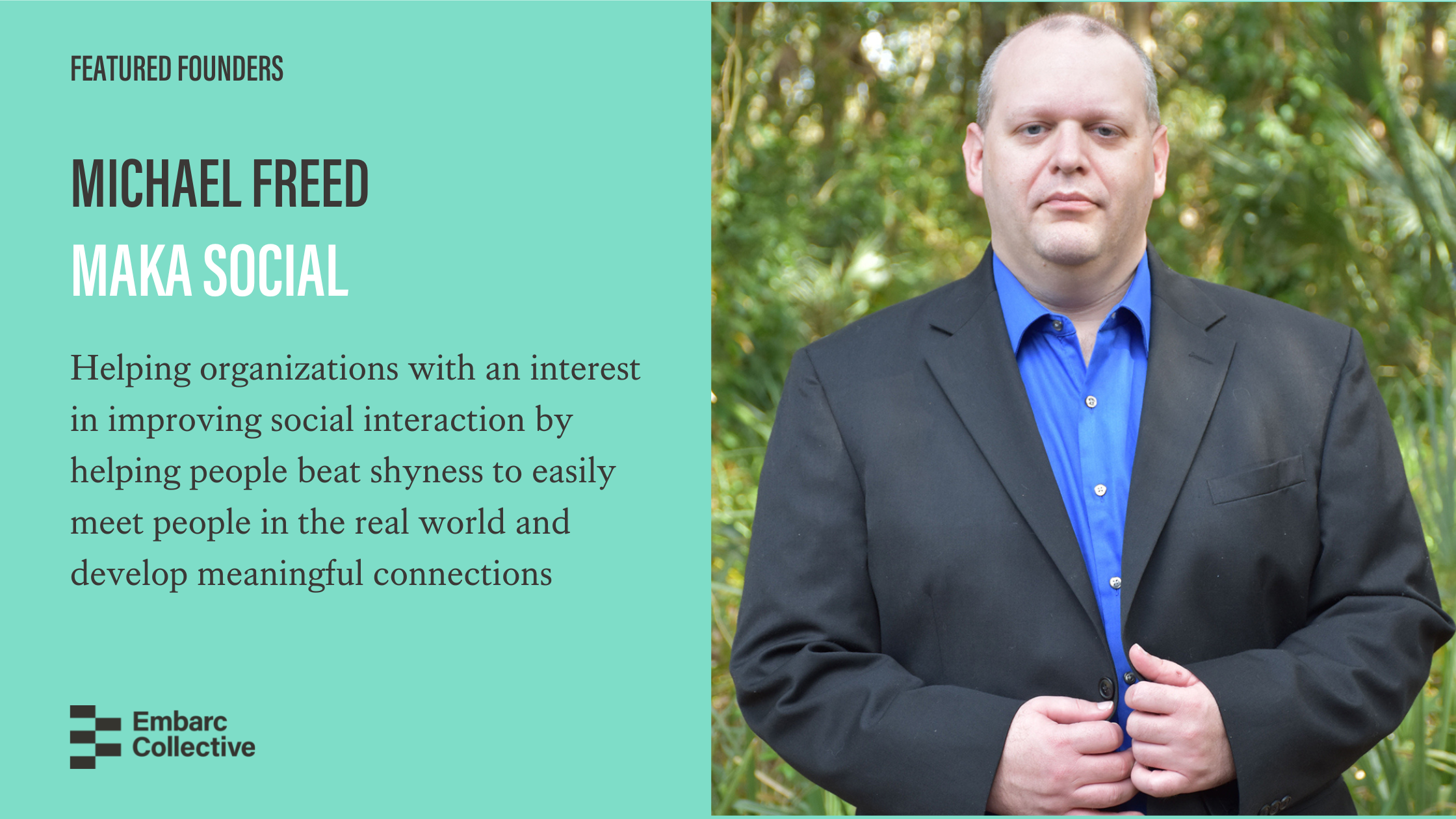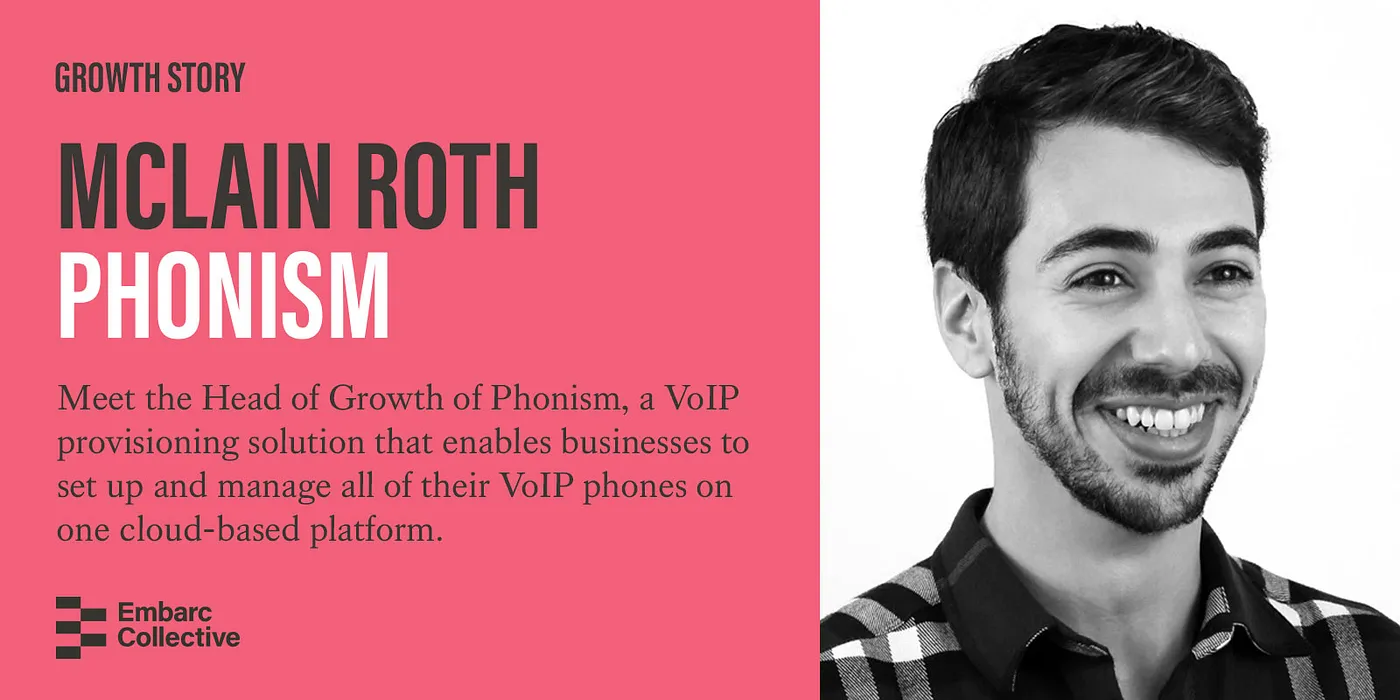Where are you from?
Cleveland, OH. I’m currently in Chicago with plans to move to Tampa Bay in a few months.
Tell us more about your role at Phonism. What does a day in the life look like?
I’m about 5 weeks in at Phonism but I don’t want to suggest that what I’m doing currently will be what I’ll always be doing. 😉
I’m the Head of Growth at Phonism and when I think about my job, or more the reason I partnered with Steve Lazaridis — the founder of Phonism, is to help him focus more on the product and executive aspects of the business. Currently, he’s that and the everything else guy. When he’s taking on all those roles, it impacts our ability to scale. With that in mind, I feel that my role is to help him with all other tasks that aren’t product or traditional CEO tasks – which include focusing on the north star, dealing with investors and championing the brand. Currently, I’m in charge of building out the early stages of our marketing strategy before we hire a marketing lead. I’m also working on implementing strong processes around sales, leveraging a CRM (which are challenging and painstaking to use but very effective for sales) and really cultivating the early sales channels available to us.
My strategy coming in was to get Phonism to focus on our core product offering vs trying to cater to each new potential use case. My thinking is we need to focus on our core use cases to build out a team, scale our process and stay profitable. Once the money comes in, I think we can focus on more specific use cases. However, our single product should cover at least 90% of use cases. I’m really excited for my role at Phonism and serving as the go-to for all things revenue, marketing, accounting and internal reporting, and soon to be external reporting.
How did you get your career started and what challenges did you face along the way?
I actually started at AT&T through their college hire program. I lucked out since it was the first time they were offering a technical engineering sales program. I was supposed to be in the program for five months, but within two weeks they were like, “who is this kid? We need him” and they offered me a full-time position. I ended up piloting and developing a curriculum around technical engineering sales, including how to network, follow a standard sales protocol and how salespersons could communicate how mobile phones connect to our larger networks. When I left the position, I was hired in Chicago to oversee a technical sales team for a corporate company. I’m from a telecom family, my dad and brother are both involved in the industry, so I naturally was interested in the position but the corporate world hits hard.
The more time I spent solving problems, the more I realized they didn’t want me to solve them. After a year in Chicago, the little things were all I could think about. It made no sense that the corporation used a tool they were paying thousands for (that no one was using or wanted to use) vs adapting the macro spreadsheet I had created during my time there (that everyone was using) across the organization — it just didn’t make sense and was my biggest challenge working in corporate. Shortly after realizing this wasn’t for me, I quickly transitioned over to the startup world.
I joined a telecom startup in Chicago and here is where I really started to sharpen my blades and learn what it takes to build a business, how financials get moved around, etc. When a startup gets funding, everyone gets really excited and immediately starts to think well, how do we hire? how should we operate? how can we make sure our operating models are informative and not historical? — but no one tells you how to do this.
I first started as a sales guy on the team. Things had changed drastically after a my first few months and nearly all of the sales leaders and existing salespersons were either fired or left after I stepped in and started solving problems. I later took over the sales team entirely till around our 20th hire. At the time I was not only running the sales team, but the marketing team and the customer success team, which was more non-technical support that paired well with the sales teams’ efforts. I spent 4 years at the startup and met Steve during that time. Over the years, Steve and I had a trade show-dependent relationship, but I was lucky to catch him at the right time when he was looking to hire a number two for his team to help Phonism scale.
One of the unique challenges with a startup is the social economy of the business, which to me is really interesting. It’s very reliant on social intelligence. I sometimes wish there were classes on this or tests to find out how socially intelligent someone is. I’m continually challenged (getting better but also learning more) on how to manage expectations of the people above and below you while still keeping everyone motivated. You can’t really understand what this looks like until you agree with people on both sides that are diabolically opposed. I feel like this is always growing, so dynamic and very interesting.
Budgeting has also been another challenge in my career. When you’re in a corporate setting, the budget is almost always predetermined. In a startup, there is no budget. You need to create one, make sure it’s flexible, and include an ROI model. You get money from a VC and you think great, I’ll put this in marketing, but then you ask yourself, well how do I know the marketing dollars are working after three months? How do I account for this? How do I iterate this?
I’d say the biggest challenge, especially as sales leaders, is creating reproducibility. What I’ve learned so far is hire the right sales people early. These people will generate business for you. Getting $1M in sales in an amazing achievement, but when you start to push for more, like reaching 8 and 9 figures, it seems insurmountable. You have to take the practices you did to get to $1M and make it 10x. How do you find channels that go to that next level and beyond? This is why you’ll see companies make huge pivots on their way to success. It’s the “take a step back to take a step forward” approach. These are some of my top of mind challenges when dealing with sales. It’s an interesting cycle.
How has this region shaped your career or startup journey?
I’m currently in Chicago and truly love it here. But when asked how I feel about moving to Tampa, I try to separate the two so it isn’t a drawn to a bittersweet experience. Tampa is an up and coming city, still in development much like the members of Embarc Collective. From what I know so far, it sounds like Tampa is on its way to becoming another startup hub. I feel the startup leaders I’ll be networking with while there will make Tampa’s startup story. I would love to say I know the next unicorn startup founder based in Tampa. What’s great about the telecom industry is an overlapping trade show circuit. In a region like Tampa, we have leverage to be a leader in the telecom space here. If we can find the right talent and people in Tampa I’m confident we can easily pull others into this market — we clearly have an addressable market.
What tactical advice can you share from building your startup or career?
One of the things I learned early on is to eat your own dog food and make sure to eat it before you sell it. One of the things that we struggled with early on is there are so many talented engineers with proficiency in software development, especially technical founders, who always say they can build. The idea that if you build, they will come does not work. If you build something that claims to solve a problem, yeah they may use it, but that doesn’t mean the product you built actually solves the problem. When people build a product, they usually build with the intention of how people should use their products, not how they actually will use them.
To solve this, I learned you need to separate the problem space and the solution space. One of the challenges they had when sending astronauts to the moon was that pens would not work in space and astronauts needed some way to record notes. The US took the problem and spent a ton of money to develop a pen that could work in space, while in Russia they determined a pencil would work just fine. The lesson here is sometimes you get so caught up in the problem, you lose sight of the solution. In this case, the astronauts didn’t need a new space pen, they just needed to handwrite notes.
Eat your product like a customer would eat it. If you’re serving dog food on the floor, than you will need to eat it from the floor. Little things like this will help you understand how your customer is using your product which is necessary to build a strong MVP.
Another lesson I learned is to never sell your product for free. I got this advice early on in my career. I will stay by this always because once you offer your product for free you can become distracted from what actually generates your revenue. You’ll be at the hands of the customer, making changes for any little requirement, and it’s at no cost to them. Cut a deal, draft up a revenue share agreement, but don’t do it for free.
Where do you see Tampa Bay next? How do you play a role in this future?
What I would love to do is be a part of the group of people in Tampa who are considered the startup soundboard for the region. I’m still young in my career, and have tons more to learn and make mistakes on, but would like to help others who are in a process I once was. I’m not super interested in being startup famous. I’m more interested in building the local startup culture that I feel Embarc Collective is trying to cultivate. I look forward to a place you can walk in and throw your spaghetti on the wall and instead of waiting around until it sticks, you have other builders who are helping pick up the pieces to assist you in making it stick. I look forward to being in an environment of early adopters. I think of it as a hack-a-thon environment but on how to build a business. My goal is to become an OG in the startup community and want to be available to startups to ask for advice or conversation. I want to work with people who give me the “i’m never satisfied feeling”, in a good way. When we’re crushing the world with Phonism, I plan to pay it back as an agile mentor.
Learn more about Phonism on LinkedIn, Twitter, and Facebook
Keep up with the latest in Tampa Bay startup news, local talent interviews and founder resources.
Delivered to your inbox every Thursday.



